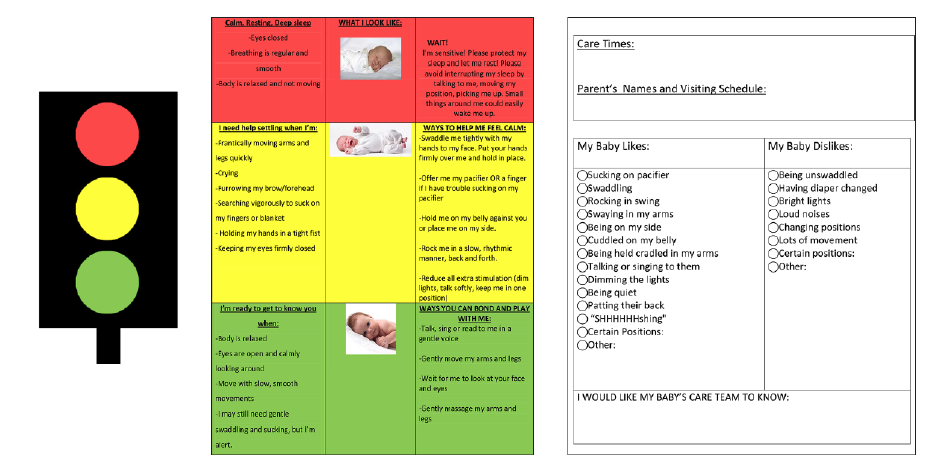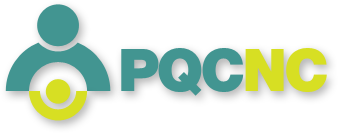The Safe Sleep Calculator cohort of clOUDi 3.0 kicks off this week with teams engaging patients and families to explore their concerns at discharge and their overall knowledge / familiarity with concepts around safe sleep...
Updates
High performing teams participating in the clOUDi 3.0 Sprint have been busy the past few weeks revising and submitting their Quality Improvement Plans to guide their work during this sprint - there are quite a few areas of focus including postpartum depression, narcan for all, piloting the safe sleep calculator - folks are anxious to get started...
Facility teams with a demonstrated concern and commitment to comprehensively lessening opioid use disorder impact gathered for a full day of collaborative work in Raleigh NC for the kickoff of clOUDi 3.0. The morning was spent listening to a variety of speakers to level up the knowledge base before spending the afternoon crafting quality improvement plans to tackle the issue at their own institutions. Teams heard a personal story from a mom, learned how Maine is working to ensure universal postpartum naloxone distribution, discussed behavioral health care in the perinatal period and use of psychiatric consultation services, and did a deep dive into safe sleep and the use of a safe sleep calculator to encourage discussion...

In response to the lack of options for maternal SUD treatment, Blue Ridge Community Health Services (BRCHS) launched a program for comprehensive, gender-specific, trauma-informed perinatal and postpartum SUDs care at its Polk County clinic (BRH-Polk). BRCHS has since then replicated the program at its main Henderson County clinic (BRH-Chimney Rock); the program will be replicated at the Haywood County clinic (BRH-Haywood) in September 2022. These groups are fully staffed by a Licensed Clinical Addiction Specialist (LCAS) and family physician/nurse practitioner. Groups meet weekly and follow a 12-week curriculum covering a variety of topics related to addiction, recovery, and the pregnant and postpartum period. Topics focus on understanding addiction as a chronic brain disease; tools in recovery (for example, managing triggers and cravings); goal setting; mindfulness; identifying and coping with past trauma; and preparing for, bonding with, and caring for their infants postpartum. Children are welcomed at groups, and participants model and share parenting skills among their co-participants. Participants also engage in a comprehensive plan of care including individual counseling, psychiatric services, MAT if indicated, medical services including prenatal care, and preparation for delivery and postpartum.
The stigma that women with substance use face can be so overwhelming as to prevent them from seeking prenatal care and developing trust in their healthcare providers. Novant Health has taken steps to change the culture of stigma around substance use by creating an Addiction Stigma Elimination Team (ASET).
ASET is comprised of Novant Health team members from all over the organization who have a personal connection to addiction on some level and/or are passionate about eliminating stigma. The goal of the team is to eliminate stigma towards individuals not only with addiction, but also mental illness and behavioral health. Projects are primarily focused on awareness-building and education among team members.
ASET published an Addiction Stigma Elimination learning module in January 2020 for all Novant staff to view. ASET is also working on developing a team member addiction peer support group.
Atrium Cabarrus, in collaboration with the SUN Alliance, are developing a prenatal education class specifically for mothers with substance use. The agenda for the class is identical to one offered to the general public and will cover areas such as what to expect during delivery , post partum maternal care and infant care but will also highlight potential behavioral effects of neonatal opioid withdrawal syndrome and interventions to assist the infant in coping with signs of withdrawal.
The class will provide a safe space for women with substance use to ask questions that they may not feel comfortable discussing in a larger class composed of others who have not experience substance use. Questions regarding medication assisted therapy, how their pain will be controlled during labor and after delivery, what effects they may see in their newborns from medication assisted therapy and DSS involvement are among topics that will be covered.
As teams have begun adopting the Eat, Sleep and Console model of care for infants with neonatal opioid withdrawal syndrome, the team at Catawba Valley created a tool to both improve parent communication with the healthcare team and aid in their understanding of withdrawal syndrome.
The tool is modeled after a traffic stoplight incorporating the colors of red, yellow and green. Each color corresponds with a set of infant behaviors with red indicating an infant in deep sleep that should not be disturbed to green indicating an infant ready for interaction. The tool is intended to aid parents in interpreting infant behavioral cues and provides suggestions for how to respond to their infant to restore a state of calm.
Additionally, a communication tool is provided for the healthcare team where parents can indicate behaviors they have found soothing to their infant as well as behaviors that were not helpful.

As the kickoff for the initiative draws closer teams are attending webinars to bring them up to speed on everything they need to know regarding the plan of safe care and choosing and implementing validated screening tools
North Carolina hospitals are busy preparing for the kickoff of the clOUDi initiative putting together a Perinatal Quality Improvement Team (PQIT) to undertake the work including identifying a project lead who will be the main team, ensuring that the MD's on board are prepared to demonstrate engaged leadership, and sharing relevant policies and procedures with PQCNC.
It's January 1 - PQCNC and the Expert Team have begun the work of developing a charter, key driver diagram and metrics for this initiative in advance of a launch in January 2021. If you have experience, knowledge, expertise or interest in supporting the creation of such an initiative, please join us. We are calling on mothers, fathers, family members, docs, nurses, therapists, social workers, counselors, hospital and clinic leaders, addiction specialists, midwives, practitioners, public health officials, government leaders, and payers/purchasers of healthcare to consider joining us.
The only requirement for "Expert" is a willingness to read background materials we supply and commitment to joining us for perhaps one face to face meeting and 4 webinars over 6-8 months.
This is an initiative that is critically needed. We have all been touched in different ways by this growing crisis - to join the Expert Team please click here
If your facility is considering joining the intiative please click here and we'll keep you informed of next steps
